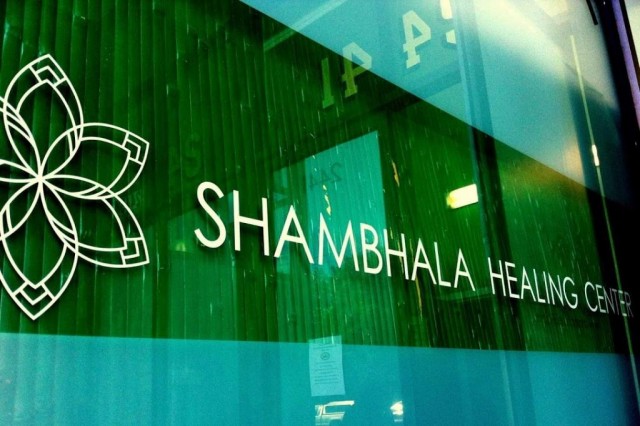
A medical marijuana dispensary told a federal judge that the U.S. government may have bamboozled it in a forfeiture order against its landlord.
Uncle Sam filed a federal forfeiture complaint against the property at 2441 Mission St. nearly a year ago. That action accused tenant Shambhala Healing Center of selling marijuana within 1,000 feet of a public playground, in violation of the Controlled Substances Act.
Ebrahim and Valintin Poura agreed to pay $150,000 or forfeit their interest in the property, and U.S. District Judge Susan Illston signed the deal Tuesday.
The judgment notes that the Pouras have admitted the “property is being used to facilitate the distribution of marijuana” and is therefore subject to forfeiture.
That admission did not sit well, however, with Shambhala.
In a Wednesday motion to amend, attorney Henry Wykowski argued that the supposed “findings” are “highly contested by claimant Shambhala.”
Shambhala was not a party to the partial settlement, nor did it have any opportunity to approve the settlement or contest the finding in court, and “thus should not be bound by the alleged ‘findings,'” Wykowski wrote.
It could be that the government had “ulterior motives” in adding the findings to a proposed order submitted to the court, and it may argue that the “findings” are binding, Wykowski said. Either way, “Shambhala cannot take that chance,” he wrote.
The lawyer asked the court to delete the contested paragraph and issue an amended order.
In addition to the $150,000 payout in lieu of forfeiture, the Pouras agreed to “assist the United States in good faith, as needed against the remaining claimants involved in the above-captioned action or any related civil forfeiture action involving the tenants (Shambhala Healing Center) of the defendant real property,” according to the judgment.
They have until Jan. 27, 2015, to come up with the money, and the Pouras indicated they might have to refinance the property to do so. Otherwise they must forfeit all their rights to the property to the government, and they must cover the costs of the forfeiture action, as well as unpaid property taxes, real estate commissions and other associated fees.
The judgment comes days after Illston granted leave for Khader Al Shawa, one of Shambhala’s two owners, to appeal for a protective order. The action has been stayed pending that appeal.
Al Shawa wanted immunity because a deposition the government intended to notice in this case would likely implicate his Fifth Amendment privilege against self-incrimination. His motion asks that any discovery relating to Shambhalah’s owners be used only for the purposes of conducting the present forfeiture litigation and not in connection with any criminal prosecution.
Prosecutors had said last year that Al Shawa and the other Shambhala owner, Kristine Keifer, had agreed to shut down the club in May 2012 but kept the club open with the knowledge of the Pouras.
Though the U.S. Attorney’s Office claimed the property is located “within 1,000 feet of both Jose Coronado Playground and Alioto Mini Park,” city records show the playground is closed and is not being operated or occupied by the city’s Recreation and Park Department.
U.S. Attorney Melinda Haag‘s first use of civil forfeiture proceedings against Shambhala came not quite a year after the government began similar proceedings against Harborside Health Center’s pot clubs in San Jose and Oakland.
Harborside, which Wykowski also represents, found an ally in Oakland after that city sued the federal government for backing out on promises to let states regulate medical marijuana dispensaries.
Oakland is appealing for standing to challenge the forfeiture.
Eric Safire, an attorney for the Pouras, did not return a request for comment.
Though voters in Washington and Colorado legalized marijuana for recreational use, and it is legal in California and other states with a doctor’s prescription, it is illegal under federal law and is still considered a Schedule 1 Drug, which means it has no accepted medical use.
Article republished from Courthouse News









